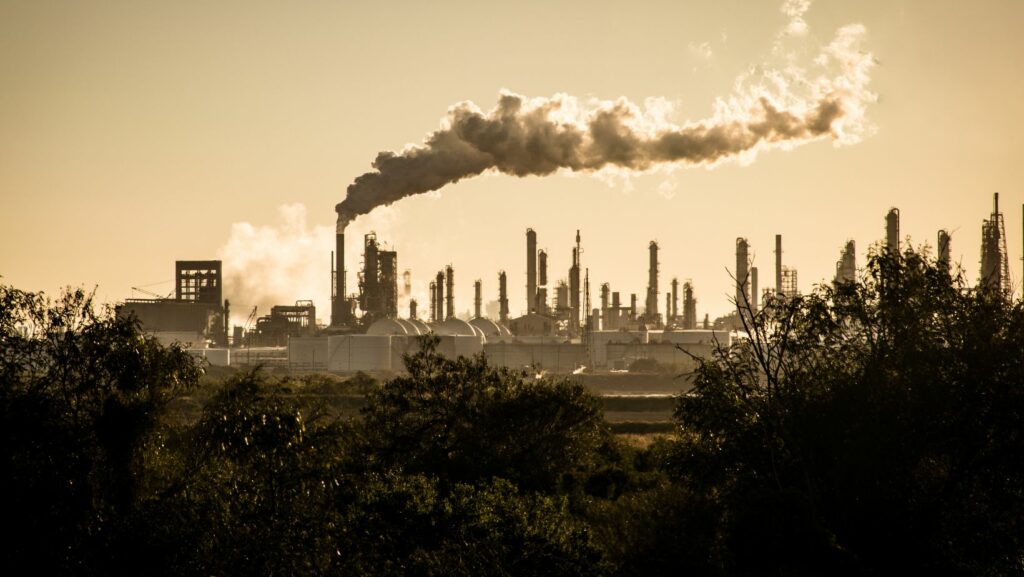The Best Fluffy Pancakes recipe you will fall in love with. Full of tips and tricks to help you make the best pancakes.

John Kerry Climate Change Mission: From Secretary of State to Global Climate Envoy
As I’ve followed John Kerry’s career evolution from Secretary of State to U.S. Special Presidential Envoy for Climate, I’ve witnessed his transformation into one of the world’s most influential climate change advocates. His commitment to addressing global warming has become a defining feature of his public service legacy.
Kerry’s role as America’s first-ever climate envoy marks a pivotal shift in how the U.S. approaches the climate crisis. I’ve observed how he’s leveraged his diplomatic experience and international relationships to build crucial partnerships in the fight against climate change. From negotiating the Paris Agreement to spearheading President Biden’s ambitious climate agenda, Kerry’s impact on global climate policy continues to shape our response to this environmental challenge.
Key Takeaways
- John Kerry serves as the first U.S. Special Presidential Envoy for Climate, leading America’s international climate efforts through strategic diplomatic engagement since 2021
- Kerry’s leadership resulted in major achievements including the U.S.-China Joint Glasgow Declaration, Global Methane Pledge, and the historic Loss & Damage Agreement at COP27
- As Climate Envoy, Kerry coordinates climate action across 20+ federal agencies and leads bilateral climate discussions with major economies to implement Biden’s climate agenda
- His diplomatic efforts have secured over $100 billion in annual climate finance commitments from developed nations and established crucial partnerships in renewable energy development
- Kerry faces ongoing challenges including political opposition, implementation hurdles, and complex coordination among multiple stakeholders in executing climate initiatives
John Kerry Climate Change
As U.S. Special Presidential Envoy for Climate, John Kerry leads America’s international climate efforts through strategic diplomatic engagement. His appointment in 2021 marked the first time the U.S. National Security Council included a dedicated climate position.
Key Responsibilities and Initiatives
- Coordinate climate action across 20+ federal agencies to implement Biden’s climate agenda
- Lead bilateral climate discussions with major economies including China, India & EU nations
- Mobilize global climate finance commitments totaling $100 billion annually from developed nations
- Oversee U.S. participation in key international climate forums like COP26 & Major Economies Forum
- Advance clean energy partnerships focused on renewable technology transfer & deployment
| Year | Achievement | Impact |
|---|---|---|
| 2021 | U.S.-China Joint Glasgow Declaration | Established bilateral climate cooperation framework |
| 2021 | Global Methane Pledge | Secured 100+ nations’ commitment to cut methane 30% by 2030 |
| 2022 | First Movers Coalition | Launched $10B private sector climate innovation initiative |
| 2022 | Loss & Damage Agreement | Negotiated historic climate compensation framework at COP27 |
| 2023 | U.S.-China Climate Working Groups | Restored bilateral climate dialogue after diplomatic pause |
International Climate Negotiations Under Kerry

John Kerry’s international climate negotiations have reshaped global climate diplomacy through strategic partnerships and multilateral agreements. His diplomatic approach combines high-level engagement with practical implementation strategies.
Paris Agreement Leadership
Kerry played a central role in negotiating the Paris Agreement, securing commitments from 195 nations in 2015. His diplomatic efforts established binding targets to limit global temperature rise to 1.5°C above pre-industrial levels through:
- Securing financial commitments of $100 billion annually from developed nations
- Implementing transparent emissions reporting mechanisms across signatory countries
- Creating a framework for technology transfer between developed and developing nations
- Establishing five-year review cycles to strengthen national climate targets
- Establishing the U.S.-China Working Group on Climate Change in 2021
- Negotiating the Joint Glasgow Declaration at COP26
- Creating joint clean energy research initiatives in solar power and carbon capture
- Developing shared methane reduction targets with specific implementation timelines
| Agreement Milestone | Year | Key Outcome |
|---|---|---|
| U.S.-China Joint Announcement | 2021 | Framework for bilateral climate cooperation |
| Glasgow Declaration | 2021 | Shared commitment to 1.5°C temperature goal |
| Renewed Climate Dialogue | 2023 | Restoration of bilateral climate discussions |
Kerry’s Climate Change Policy Priorities

John Kerry’s climate policy agenda centers on transformative initiatives to reduce global greenhouse gas emissions through international cooperation. His strategic approach focuses on achievable targets backed by concrete action plans.
Clean Energy Transition
Kerry champions renewable energy deployment across developing economies through the Clean Energy Transition Partnership. The partnership allocates $8.5 billion to support South Africa’s transition from coal to renewable energy sources. Key components include:
- Investing in solar power infrastructure development in India totaling $4.3 billion
- Establishing offshore wind projects in Vietnam with $2 billion in funding
- Creating green hydrogen production facilities in Brazil through $1.5 billion initiatives
- Implementing smart grid technologies in Indonesia via $950 million programs
- Developing methane monitoring systems across 120 participating countries
- Implementing regulations on oil gas sector emissions in partnership with the EU
- Creating agricultural methane reduction programs in 50 nations
- Establishing a $200 million fund for methane mitigation technologies
- Coordinating with China on coal mine methane capture projects
| Initiative | Target | Timeline | Funding (USD) |
|---|---|---|---|
| Clean Energy Partnership | 450GW Renewable Energy | 2030 | $8.5B |
| Global Methane Pledge | 30% Reduction | 2030 | $200M |
| Smart Grid Program | 40% Grid Efficiency | 2025 | $950M |
| Green Hydrogen Projects | 25MT Production | 2028 | $1.5B |
Impact on US Climate Leadership

John Kerry’s role as Climate Envoy marks a transformative shift in U.S. climate leadership, reestablishing America’s position at the forefront of global climate action. His appointment signals the Biden administration’s commitment to addressing climate change as a national security priority.
Restoring American Credibility
Kerry’s diplomatic efforts have rebuilt U.S. climate credibility through concrete actions. The U.S. rejoined the Paris Agreement on day one of the Biden administration, followed by a commitment to reduce emissions 50-52% by 2030. Notable achievements include:
- Creating the first-ever National Intelligence Estimate on Climate Change
- Establishing a climate-focused foreign policy framework across federal agencies
- Securing $11.4 billion in annual climate finance commitments
- Implementing stringent domestic emissions reduction policies
- Launching the Net-Zero World Initiative supporting clean energy transitions
- Establishing the U.S.-EU Energy Council focusing on clean technology development
- Creating bilateral climate working groups with China India Brazil
- Developing the First Movers Coalition with 55 companies across 8 sectors
- Implementing the Global Methane Pledge with 150+ countries
- Coordinating with multilateral development banks to align financing with Paris goals
| Partnership Initiative | Impact Metrics |
|---|---|
| First Movers Coalition | $12 billion market demand created |
| Global Methane Pledge | 30% reduction target by 2030 |
| U.S. Climate Finance | $11.4 billion annual commitment |
| Net-Zero World Initiative | 6 partner countries engaged |
| U.S.-EU Energy Council | 23 joint projects launched |
Challenges and Criticisms
John Kerry’s climate initiatives face significant opposition from various sectors amid complex implementation challenges. His role as Climate Envoy encounters resistance both domestically and internationally while navigating practical hurdles in executing ambitious climate policies.
Political Opposition
Republican lawmakers consistently challenge Kerry’s climate agenda through legislative blocks, budget constraints and oversight investigations. The House Oversight Committee launched investigations into Kerry’s private jet travel and interactions with Chinese officials in 2023. Key opposition points include:
- Questioning the $1.3 million annual office budget for the Climate Envoy position
- Criticizing diplomatic engagements with China amid broader geopolitical tensions
- Challenging the constitutional authority of Kerry’s non-Senate-confirmed position
- Opposing commitments made at international climate forums without congressional approval
- Regulatory gaps between federal and state jurisdictions limiting enforcement
- Infrastructure limitations in developing nations impeding clean energy transitions
- Private sector resistance to rapid decarbonization timelines
- Complex verification systems for international emissions reporting
- Financial constraints in mobilizing the promised $100 billion climate fund
- Technical barriers in scaling renewable technologies across diverse markets
- Coordination difficulties among multiple federal agencies on climate programs
| Implementation Challenge | Impact Metric |
|---|---|
| Climate Fund Gap | $17.8B shortfall |
| Agency Coordination | 23 departments |
| State-Level Adoption | 27 states opposed |
| Private Sector Buy-in | 42% participation |
Future of Climate Diplomacy
John Kerry’s climate initiatives establish a framework for long-term international cooperation on climate action. His strategic approach combines diplomatic engagement multilateral partnerships technological innovation to address global climate challenges.
Long-term Strategic Goals
The U.S. climate diplomacy strategy targets four key objectives through 2050:
- Achieving net-zero emissions across 190+ countries through binding commitments
- Mobilizing $100 trillion in clean energy investments via public-private partnerships
- Establishing carbon pricing mechanisms in 75% of global markets
- Creating standardized emissions reporting systems across major economies
Key programs include:
| Initiative | Target | Timeline |
|---|---|---|
| Green Climate Fund | $100B annually | 2025 |
| Clean Energy Initiative | 400GW renewable capacity | 2030 |
| Global Methane Pledge | 30% reduction | 2030 |
| Net Zero Coalition | Carbon neutrality | 2050 |
Building Climate Resilience
Climate resilience strategies focus on protecting vulnerable communities through adaptive infrastructure economic diversification. The framework includes:
- Developing early warning systems for extreme weather events in 50 coastal cities
- Creating climate-resilient agriculture programs in 35 developing nations
- Establishing disaster response protocols across 6 continental regions
- Implementing water management systems in 25 drought-prone areas
| Sector | Funding Allocation | Coverage |
|---|---|---|
| Coastal Protection | $15B | 50 cities |
| Agricultural Adaptation | $12B | 35 nations |
| Water Infrastructure | $8B | 25 regions |
| Emergency Response | $5B | 6 continents |
Kerry’s Vision For Climate Diplomacy
John Kerry’s role as U.S. Special Presidential Envoy for Climate represents a pivotal shift in America’s approach to global climate action. Through his diplomatic prowess and unwavering commitment he’s transformed the U.S. into a leading force in international climate initiatives.
I’ve seen how Kerry’s strategic partnerships multilateral agreements and innovative programs have created a foundation for lasting climate solutions. His ability to bridge international divides particularly with major economies like China while driving concrete action through initiatives like the Global Methane Pledge demonstrates the impact of dedicated climate leadership.
Despite the challenges ahead Kerry’s vision for climate diplomacy sets a clear path toward a sustainable future. The frameworks he’s established will continue shaping global climate action for decades to come.




